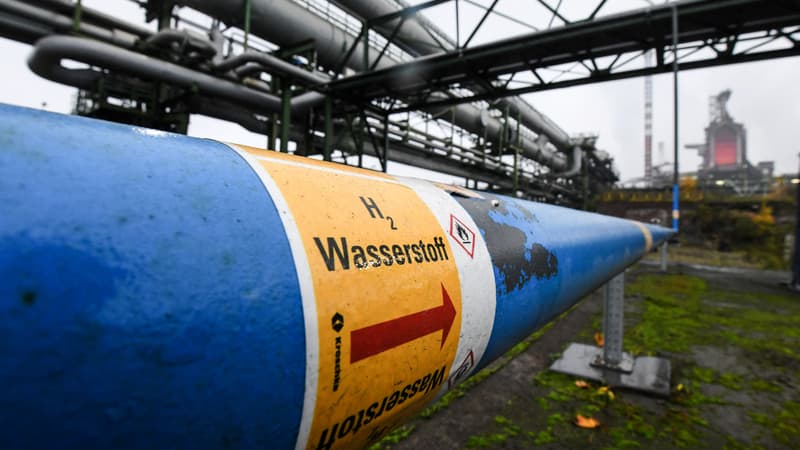The German public bank KfW announced on Wednesday that it will support with 24 billion euros the start of a national green hydrogen transportation network, an energy source presented as an alternative to fossil fuels. “The construction of the central hydrogen network”, a cornerstone of the government’s energy strategy, is “crucial for the development of green hydrogen”, especially necessary for the industry, declared KfW Chairman of the Board of Directors Stefan Wintels. in a press release.
Until 2032, Germany wants to build a network of 9,040 kilometers of hydrogen gas pipelines, in the financing of which KfW will participate. This transportation network will be financed through user taxes, just like gas and electricity. However, as only a few companies will initially use the network, they would be greatly overloaded. That is why the State will help them through its financial arm KfW. As the number of users increases, support will be reduced over the years.
The construction costs of the future network are estimated at 19 billion euros
While Germany closed its last nuclear reactor in 2023 and will turn its back on coal for the next decade, hydrogen is seen in the country as a way to compensate for the lack of electricity production. By being increasingly produced with renewable energy, hydrogen can become, according to Berlin, the central fuel for heating, air and maritime transport, as well as for the production of electricity. It is also used in the steel, cement and chemical industries to replace coal or gas in an environmentally friendly way.
Gas pipeline network operators estimate the construction costs of the future network to connect the 16 federal states and the main industrial regions at €19 billion. Due to the lack of sufficient green hydrogen locally, Germany will have to import a large part of this resource. Thus, between now and 2032, 13 border connection points for imports are planned. Around 60% of the network in Germany will be able to use old natural gas transport infrastructure, while the rest will require new construction.
Source: BFM TV


